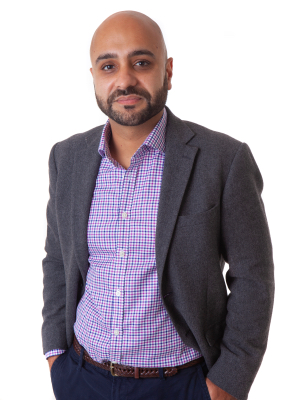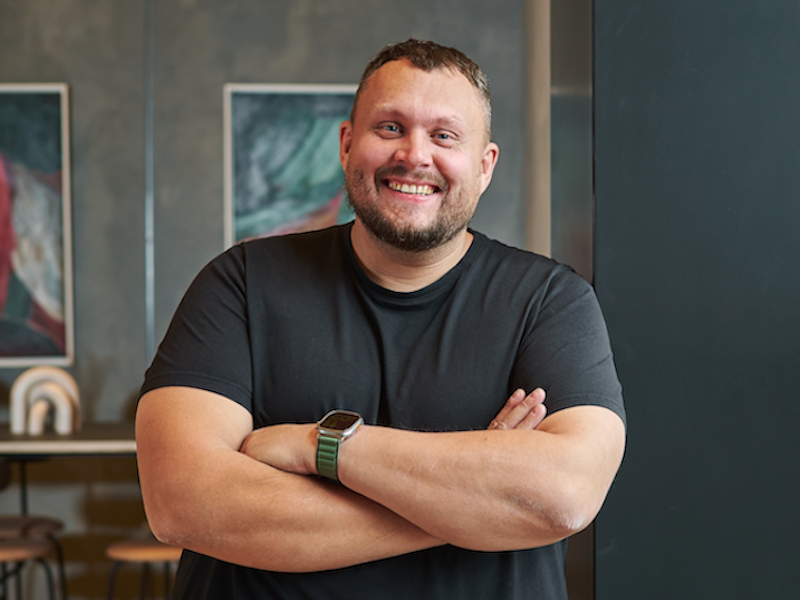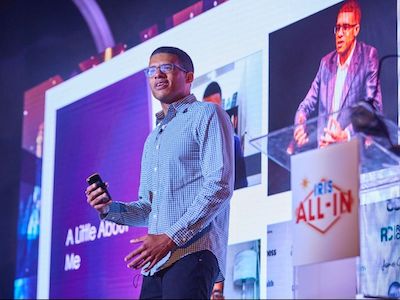 Asif Sadiq is Head of Diversity, Inclusion & Belonging for The Telegraph.
Asif Sadiq is Head of Diversity, Inclusion & Belonging for The Telegraph.
Delivering the strategic plan to drive a co-ordinated approach across the business to focus both investment and intent on the broader inclusion agenda. He is a Global Multi-Award Winning Diversity and Inclusion expert with a proven track record in achieving operational and strategic targets, managing quality, performance, risk and change through promoting equal opportunities and diverse cultures.
He is a passionate and inspirational leader with the ability to empower individuals and create a truly inclusive environment for all. Asif is key in implementing D&I activities and programmes as well as connecting with stakeholders at all levels to build strong and influential relationships with business leaders and influencers. Asif acts as a role model, providing governance across the business on D&I and cultural change and is committed to creating a strong sense of belonging for all.
Asif has received a number of accolades for his professional and volunteering work that include the Mosaic (Prince’s Trust) Award for mentoring and NAMP Multi Faith Award, Police Officer of the Year Award, European, the Civil Servant of the Year Award, the prestigious Asian Professional Award and the highly commended Head of Diversity Award at the European Diversity Awards. Asif was honoured last year in the Queen’s birthday honours list with an MBE for his services to Policing and the Communities. He is a member of the HR Guild and a Freeman of the City of London.
Why do you support the HeForShe campaign?
I feel it is important for a number of reasons. Firstly of course it is the right thing to do, we live in a society where everyone should be afforded the same opportunities regardless of gender and this should not be a “nice to do” but should be standard practise across any organisation.
For those that don’t necessarily believe in the concept of doing the right thing, they should understand that it is also a business imperative. For any business to prosper in the future, you need innovation, new ideas, new market opportunities, better ways of solving problems and all this cant be achieved without having diversity and challenging the states quo thinking.
Finally, its important to me personally as I have a young daughter who i want to see achieve everything she is capable of, which mind you is anything at all if she puts her mind to it. But I want to ensure that she is not held back because of someone else’s biases. She should have every opportunity afforded to her that a man would while being valued for the diversity she will bring to the table.
Why do you think it’s important for men to support gender equality in the workplace?
It is important as the world around us is changing and unless we start to support gender equality we will continue to struggle as businesses and will not create truly diverse workplaces of the future that are equipped to address the challenges and harness the opportunities that the future will hold.
inequality exists and it is not a new concept, it has been present in society for a long time and has been a battle for centuries. However clear evidence shows that equality benefits all and creating a workplace that is fair for all its people not only creates a safe space for everyone to feel like they belong but allows even the majority, in this case the men, to be their true authentic selves.
We must also remember that supporting equality in the workplace doesn’t end at the door, once we have recruited female talent. It is hugely important to support female talent as you would any talent throughout their journey within your organisation, doing this will ensure all your staff feel included and we all know that a inclusive environment results in more productivity.
How welcome are men in the gender equality conversation currently?
Men are always welcome and we need to never forget that. We might not always get it right but its the intention that counts and being part of the conversation is the first step towards making change a reality. I encourage all men to be part of the conversation, that’s when you will learn about the challenges that others might face as well as finding new opportunities to better your workplace for all.
Do you think groups/networks that include the words “women in…” or “females in…” make men feel like gender equality isn’t really their problem or something they need to help with?
I think its important to have gender neutral language that allows both men and women to be part of a network. However saying that, the barrier is not the wording, its the block men create in their own minds. Every network is and should be inclusive of all and if this is not the case, then the network is not serving its purpose.
What can businesses do to encourage more men to feel welcome enough to get involved in the gender debate?
Businesses need to make sure that when they communicate or speak about gender, they dont only speak to the women within their organisations. IF any organisation believes in true gender equality then they should be confident in communicating this to the whole organisation not just women.
Do you currently mentor any women or have you in the past?
I do and you know what, I have learnt so much from them. Its not just about me mentoring them, I can give them tips and hints around how to manoeuvre their way around corporate organisations but what I have learnt about challenges that women face in the workplace has been eye opening. Even more interesting to see what naturally was a given for me or other men, women have to fight for.
Have you noticed any difference in mentoring women – for example, are women less likely to put themselves forward for jobs that are out of their comfort zones or are women less likely to identify senior roles that they would be suited for?
Interestingly I would say that the above is not so true anymore, women are a lot more confident in putting themselves forward for jobs and going out of their comfort zones. The challenge is either the biases in the systems that dont afford them those opportunities or the decision makers who are biased. I am a strong believer that we don’t need to fix women, we need to fix the processes and procedures that result in them being seen differently.








